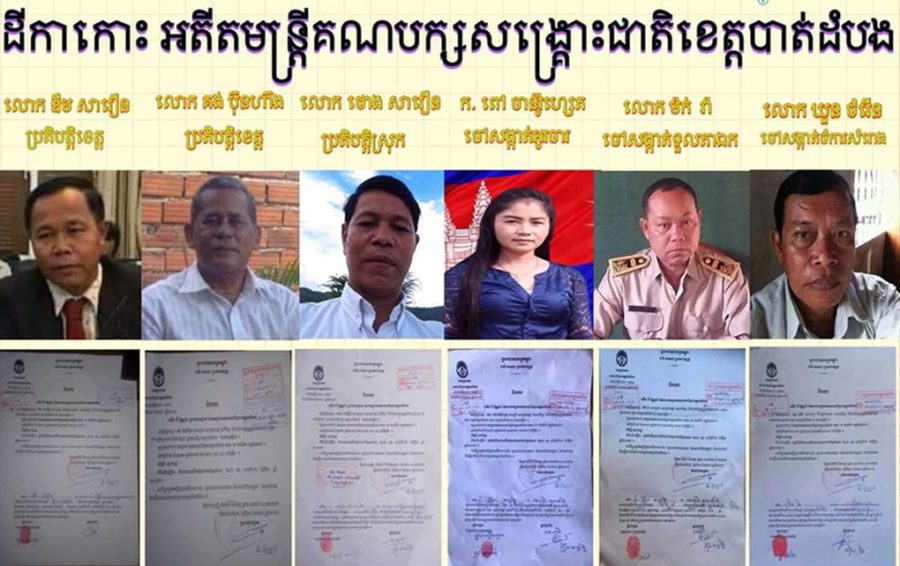More than 20 activists and officials linked to the dissolved Cambodia National Rescue Party (CNRP) in Battambang province have now been summoned for questioning by prosecutors, causing concerns about judicial intimidation.
The trickle of 23 court summonses issued since last week with little indication about the reasons for the questioning was likely intended to scare those with any links to the banned opposition party from speaking out, observers said.
Korn Savang, a coordinator at local elections monitor Comfrel, said he believed Cambodia’s judicial system was once again being abused for political reasons.
“This seems to be intimidation,” Savang said, adding that he would reserve final judgment until the questioning actually takes place later this week. “I don’t know what the court will decide [or] how the court will charge them.”
“For me, they have done nothing wrong,” he added.
The summonses require the CNRP figures to show up at the court on various dates starting May 8 for questioning on claims they violated a Supreme Court verdict that dissolved the party and also banned 118 of its senior officials from politics for five years. The November 2017 verdict came nine months before last year’s national election.
However, many of those summoned have noted they were not among the 118 banned, while others have denied taking part in political activities in any case.
Sim Lao, a former CNRP organizer from Battambang’s Sampove Loun district, said he was aware of 23 court summonses now having been issued.
“My stand since the beginning is that this is politically motivated,” Lao said.
“This is a political method,” he said.
Justice Ministry spokesman Chin Malin said that the summonses were likely issued because the Battambang Provincial Court had received tips, but he said he could not comment further until the questioning took place.
“After questioning and collecting information from the other previous sources, the prosecutor will decide if there was any offense or not. If there was an offense, he will charge them in accordance with the procedures,” Malin said.
“If there was no offense, he will not charge them,” he said.
Em Sovannara, a prominent political analyst, said the summonses of the former opposition officials showed the government’s disregard for the human rights concerns raised by the U.N., U.S. and European Union.
The international community led by the U.S. and E.U. have urged the government to reverse recent attacks on human rights and democracy or else risk having their tariff-free access to their large markets rescinded. European officials are currently re-evaluating Cambodia’s eligibility for its “Everything But Arms” (EBA) scheme.
“This mechanism could reflect that they do not care — the relevant authorities do not care about the loss of the EBA,” Sovannara said, adding that it appeared Prime Minister Hun Sen’s government was sending a clear public message.
“Secondly, [it shows] that the freedom of expression of the people is restricted,” he said. “It pushes and makes the opposition party and people who have comments against the ruling party even more scared and not dare to do any activities.”
(Translated and edited from the original article on VOD Khmer)












